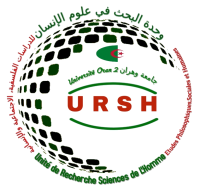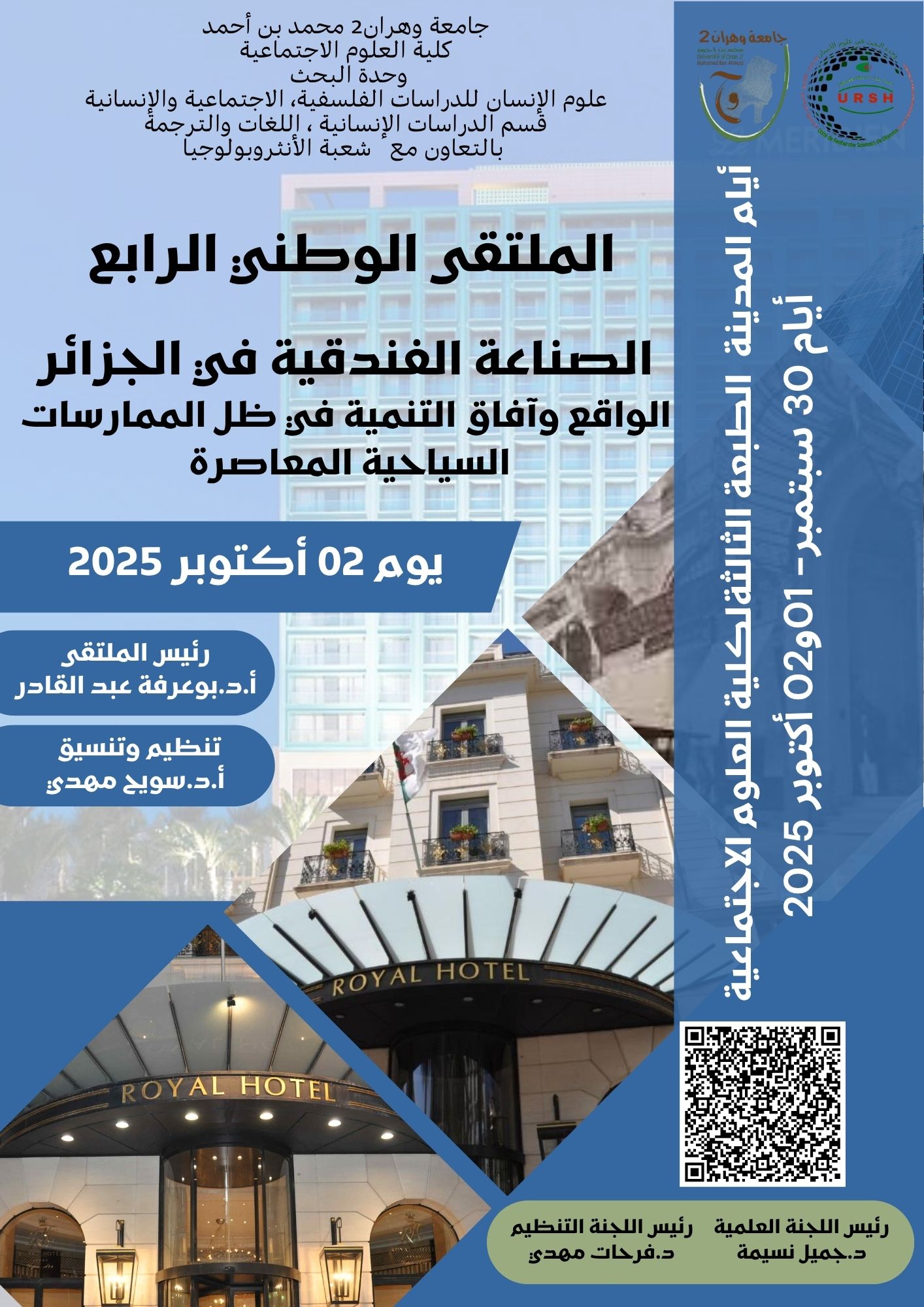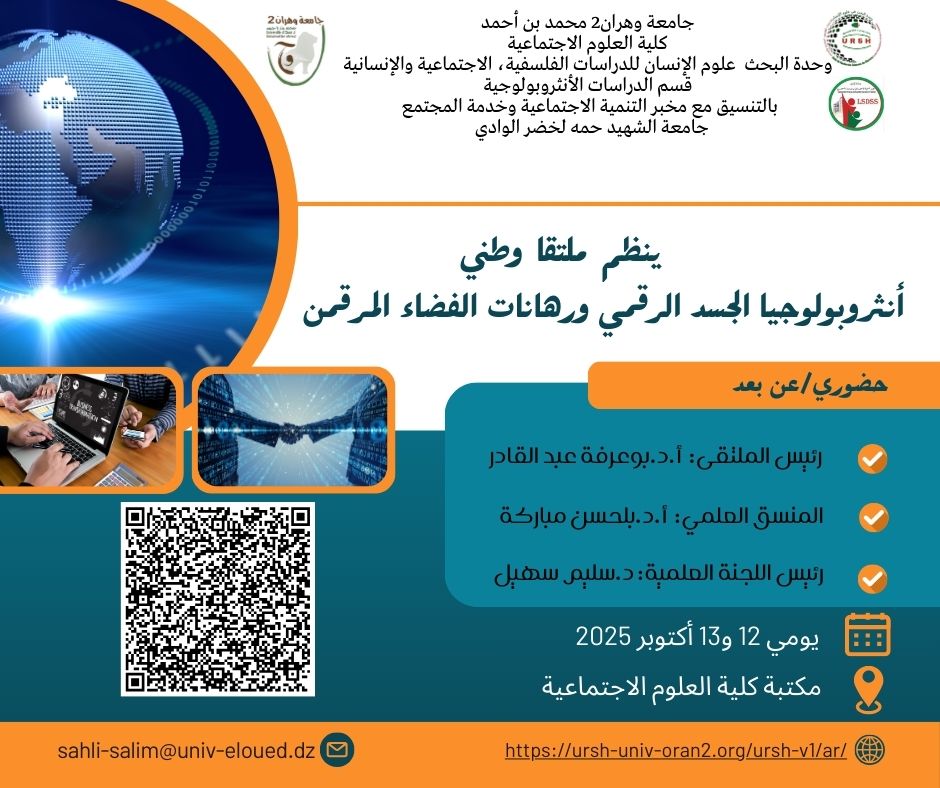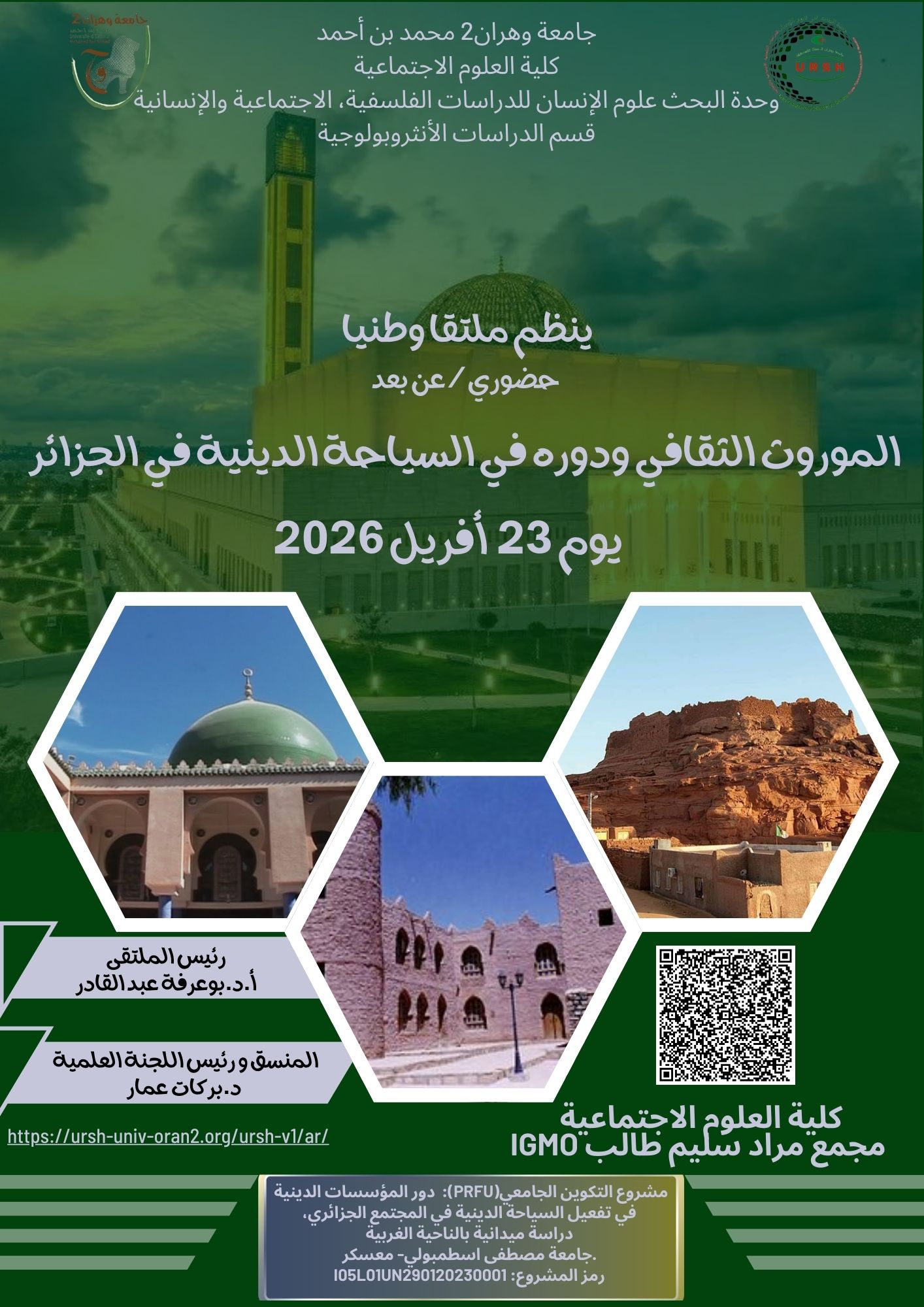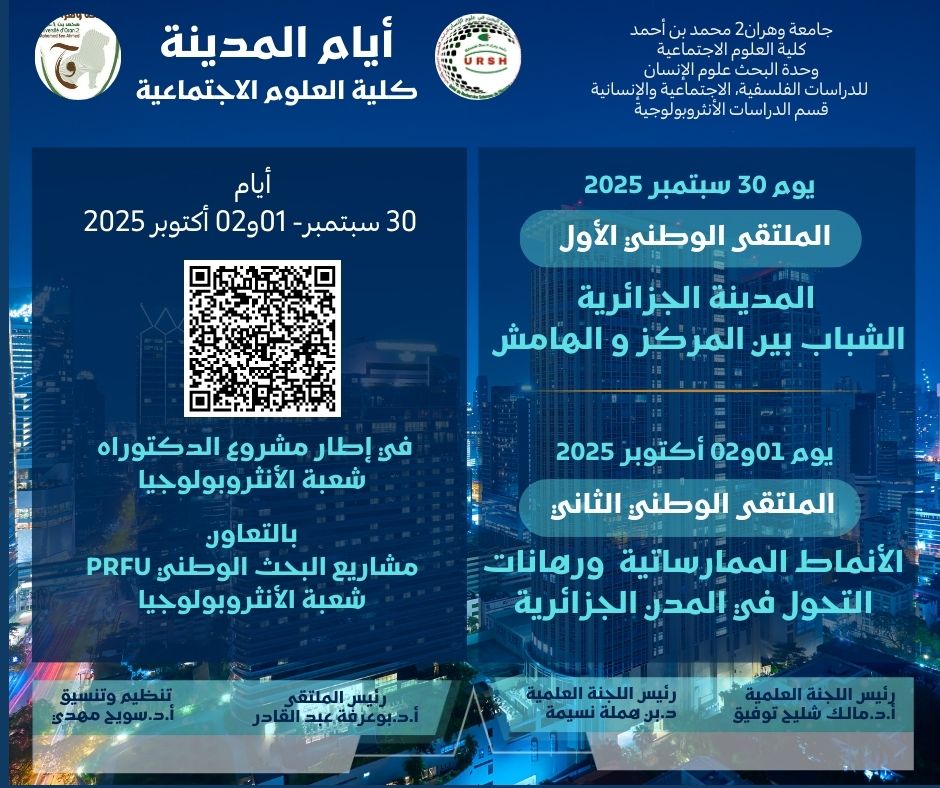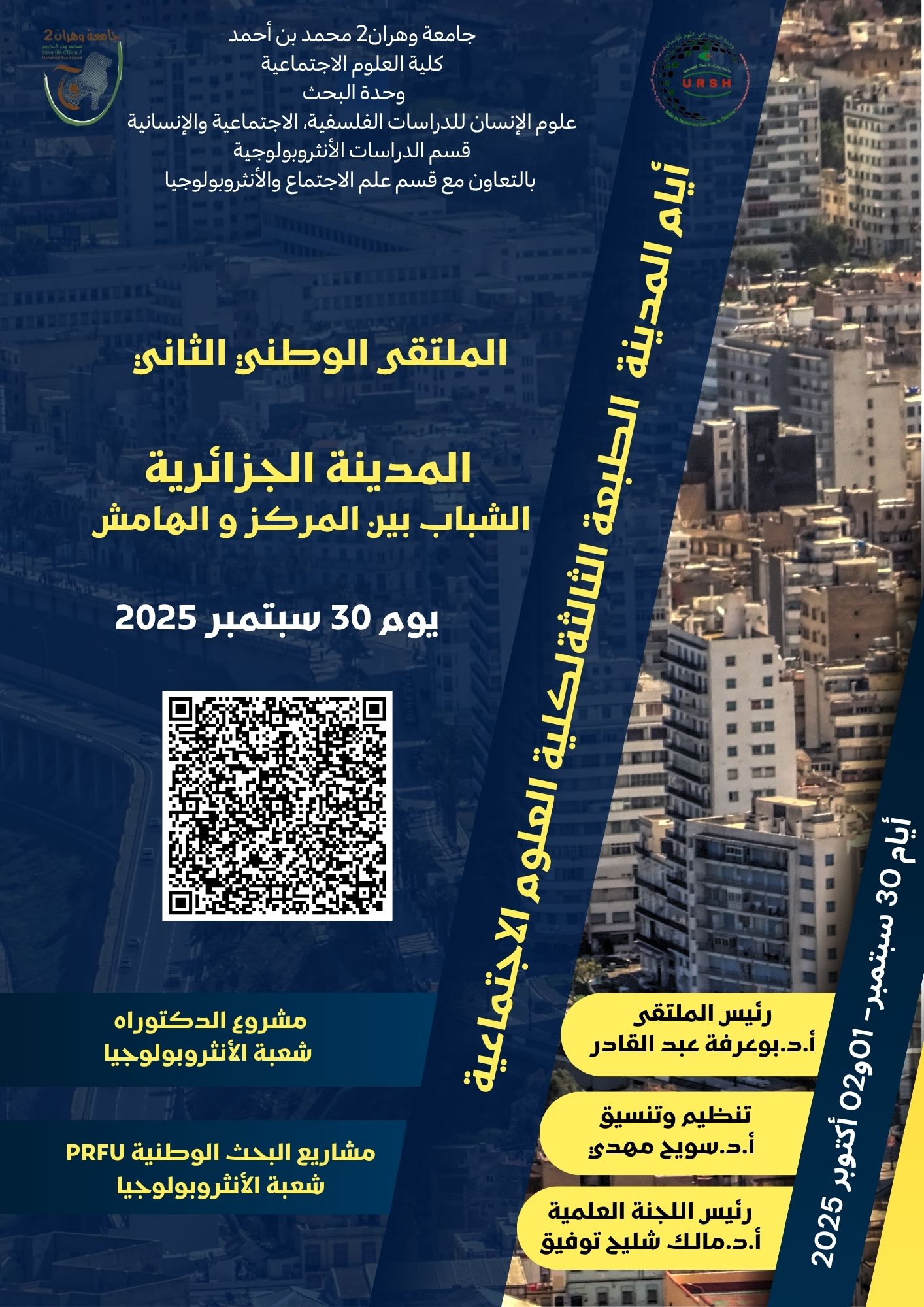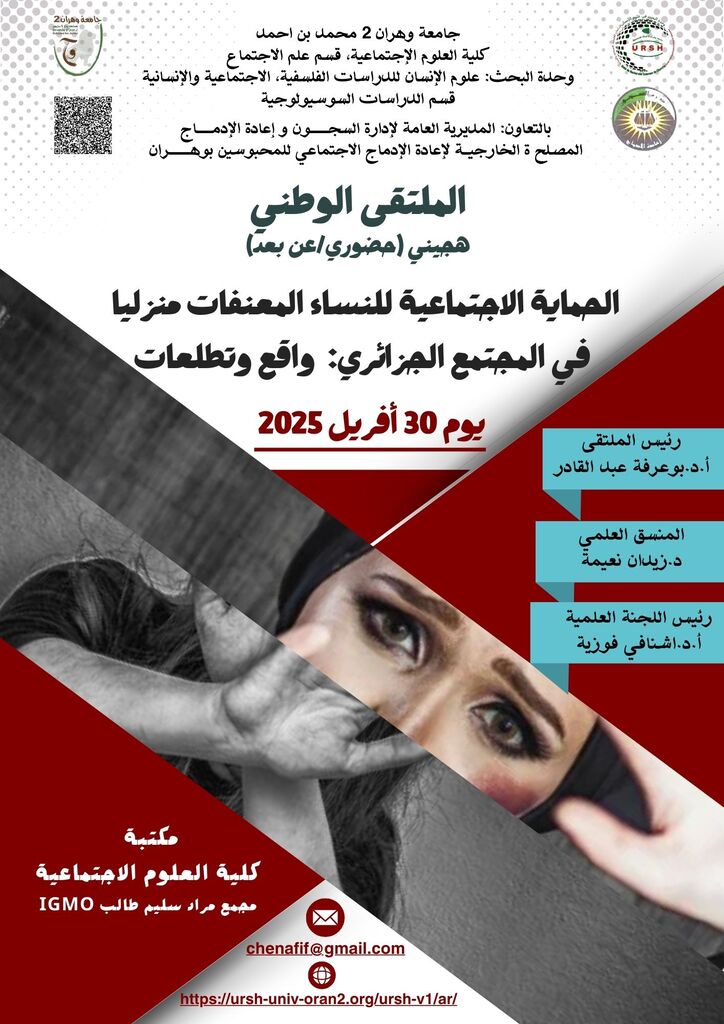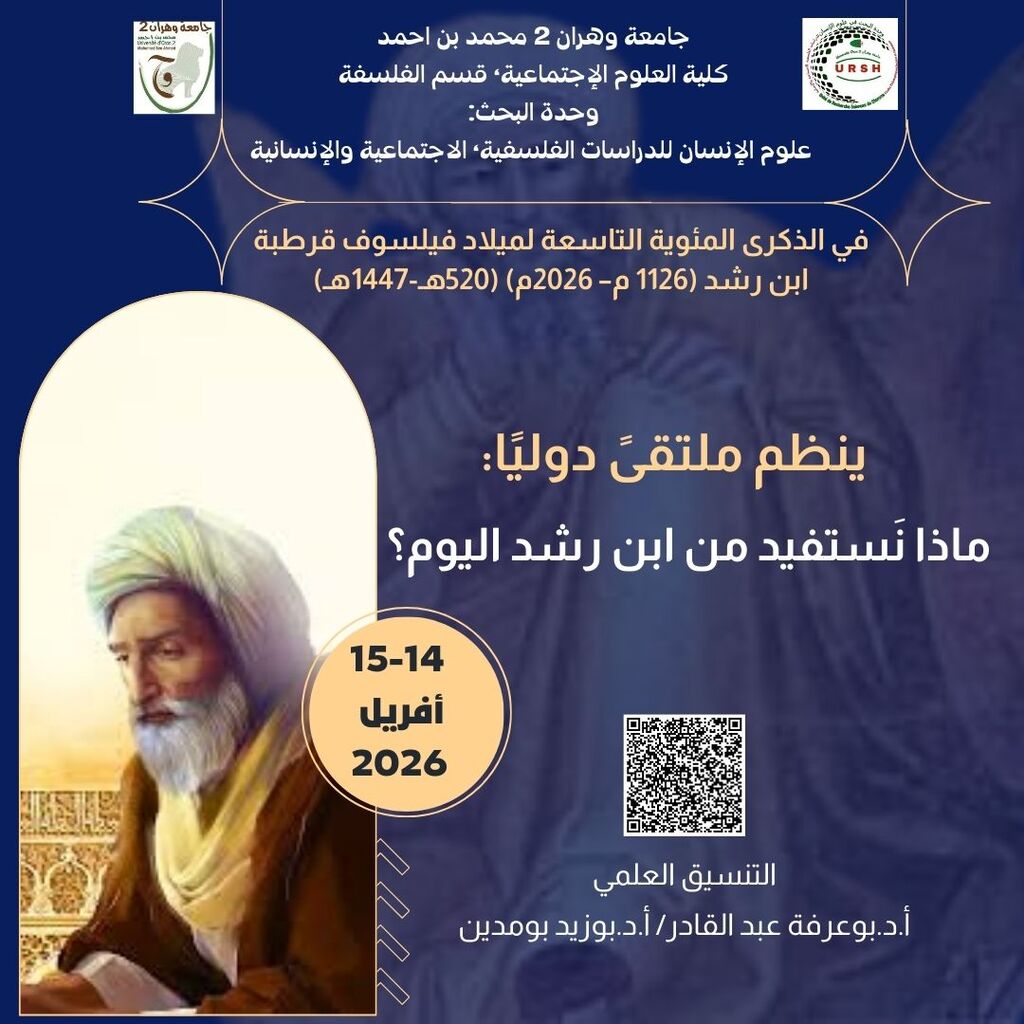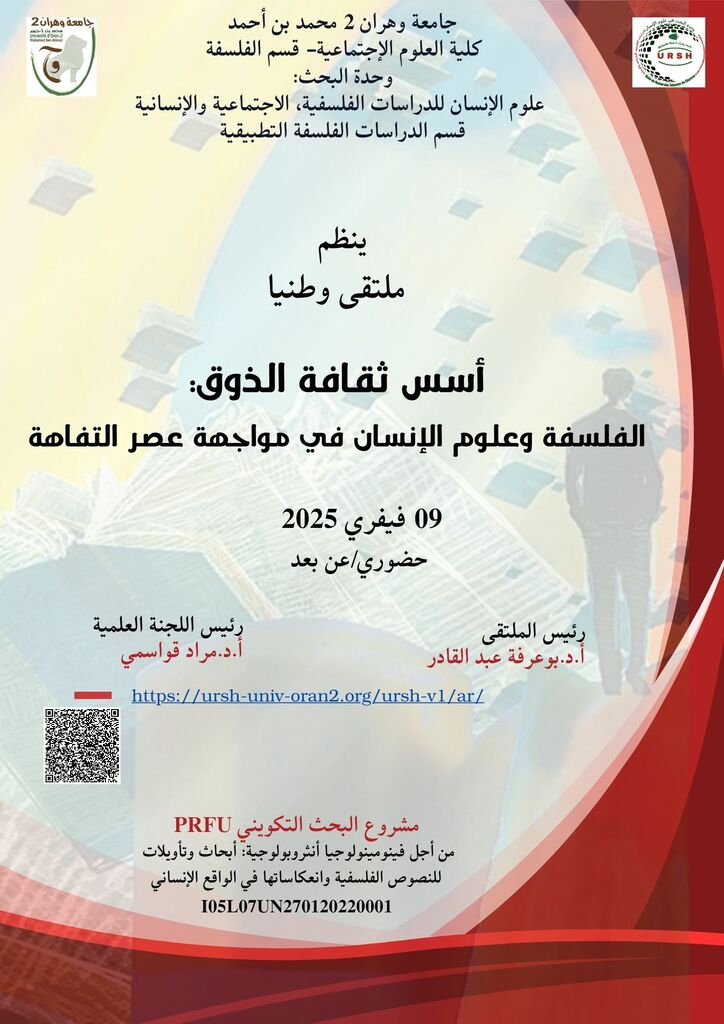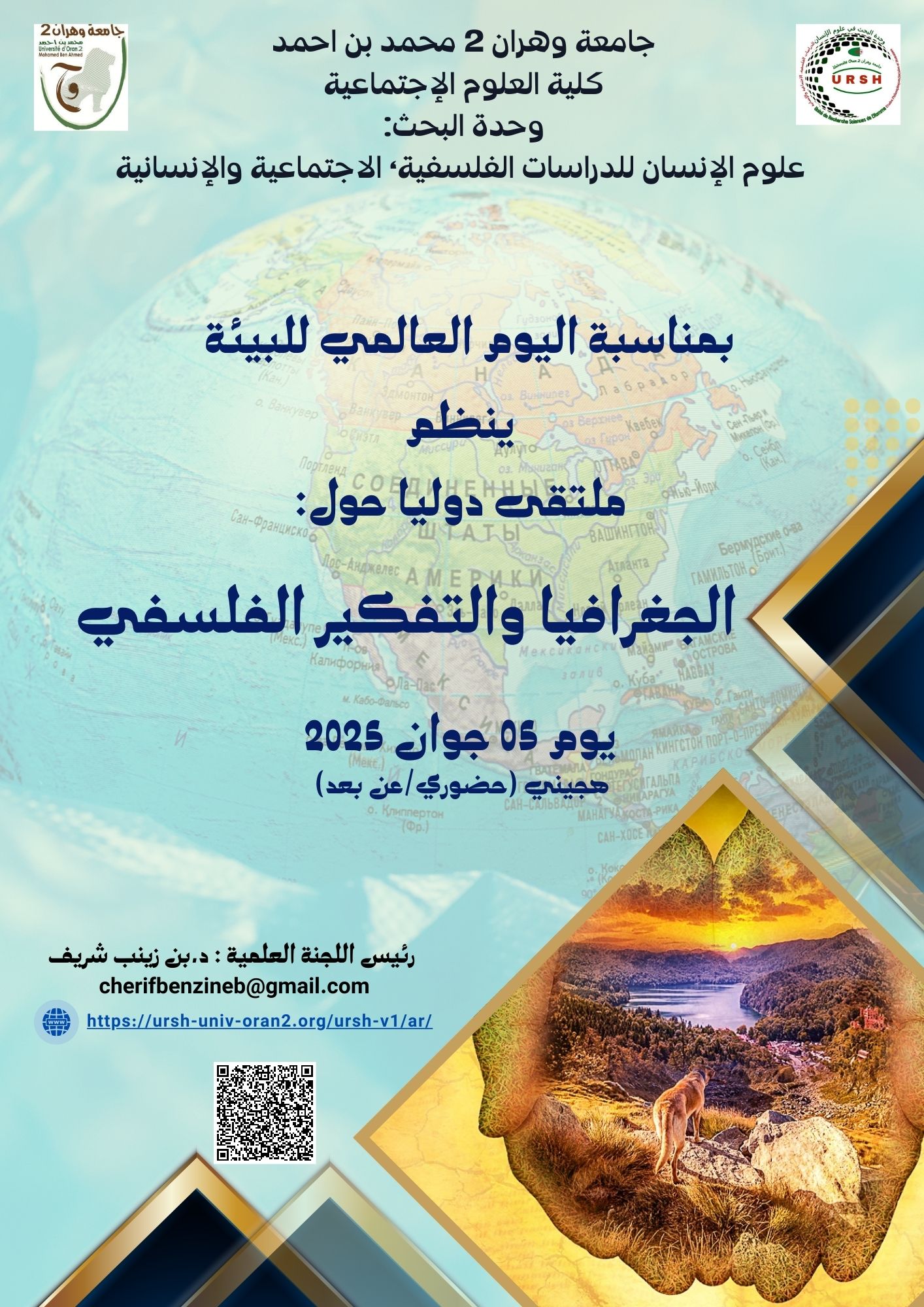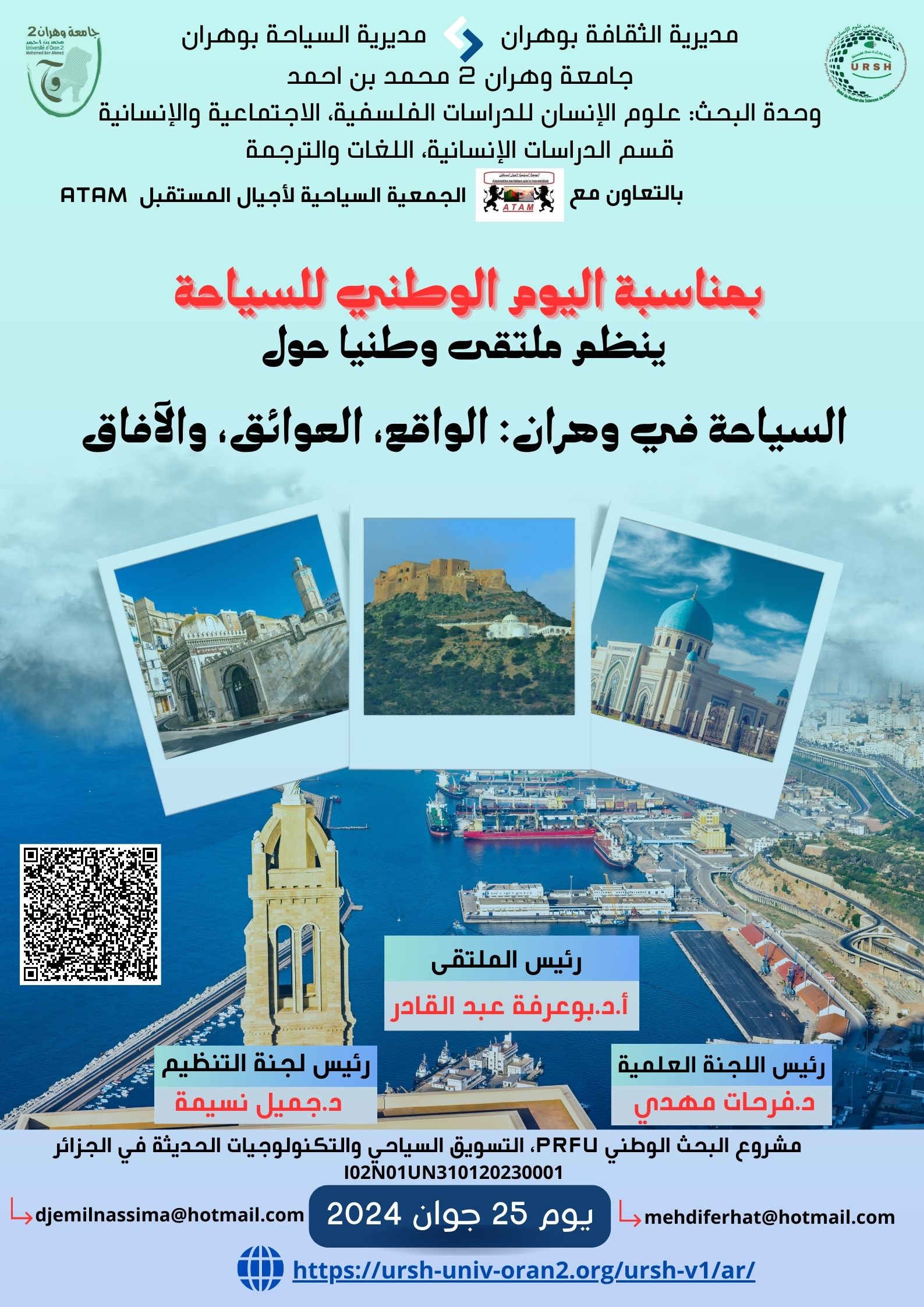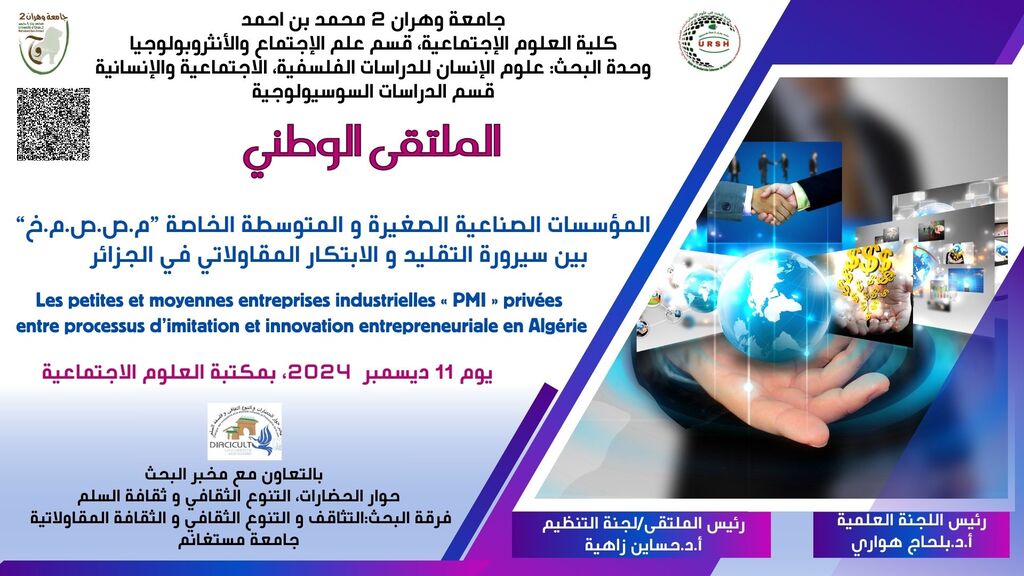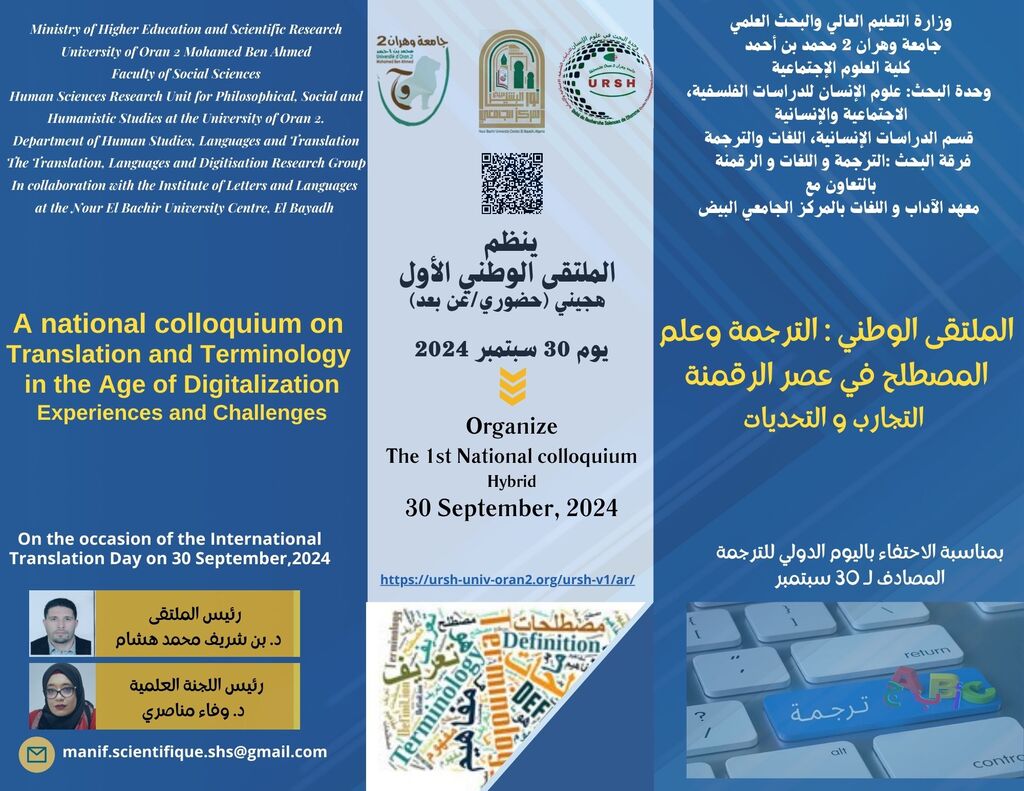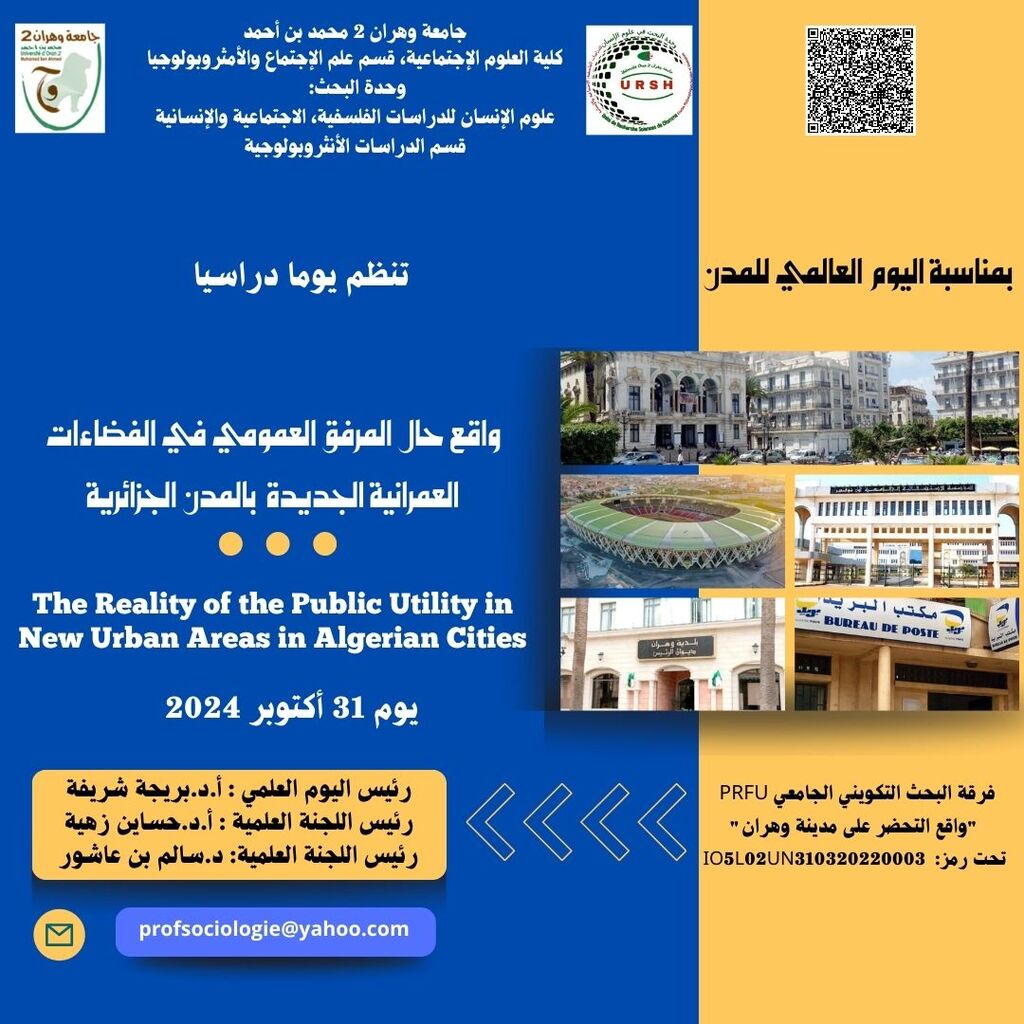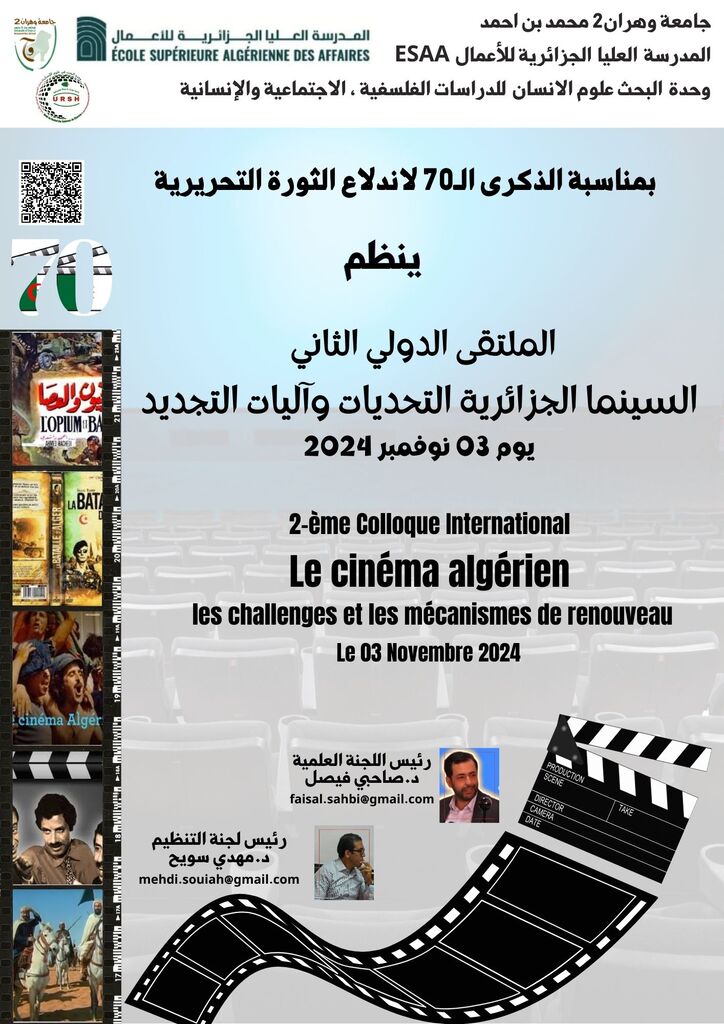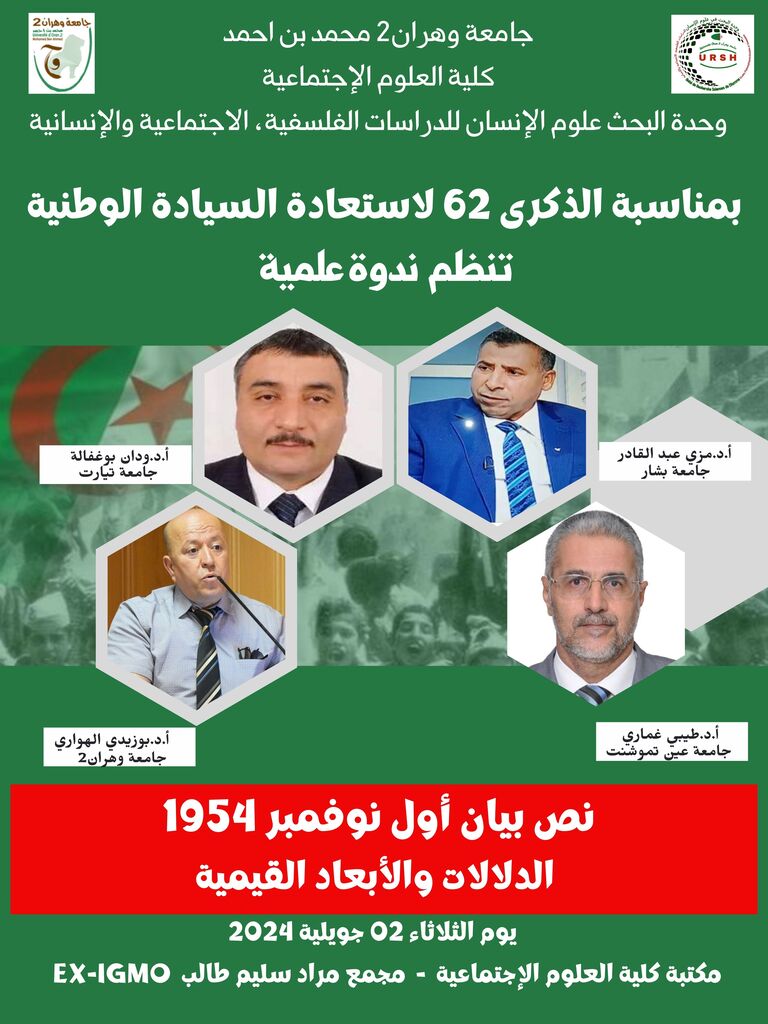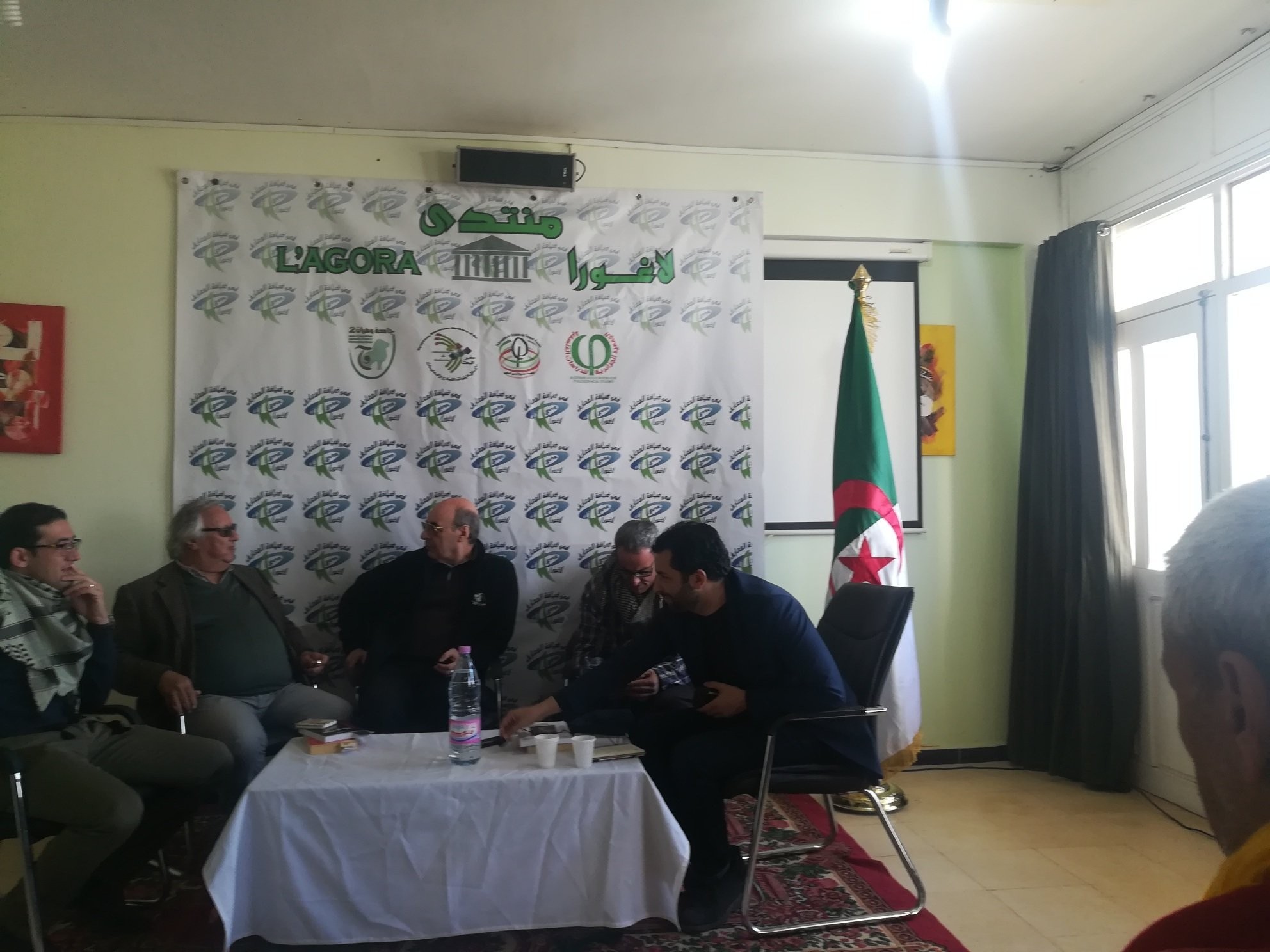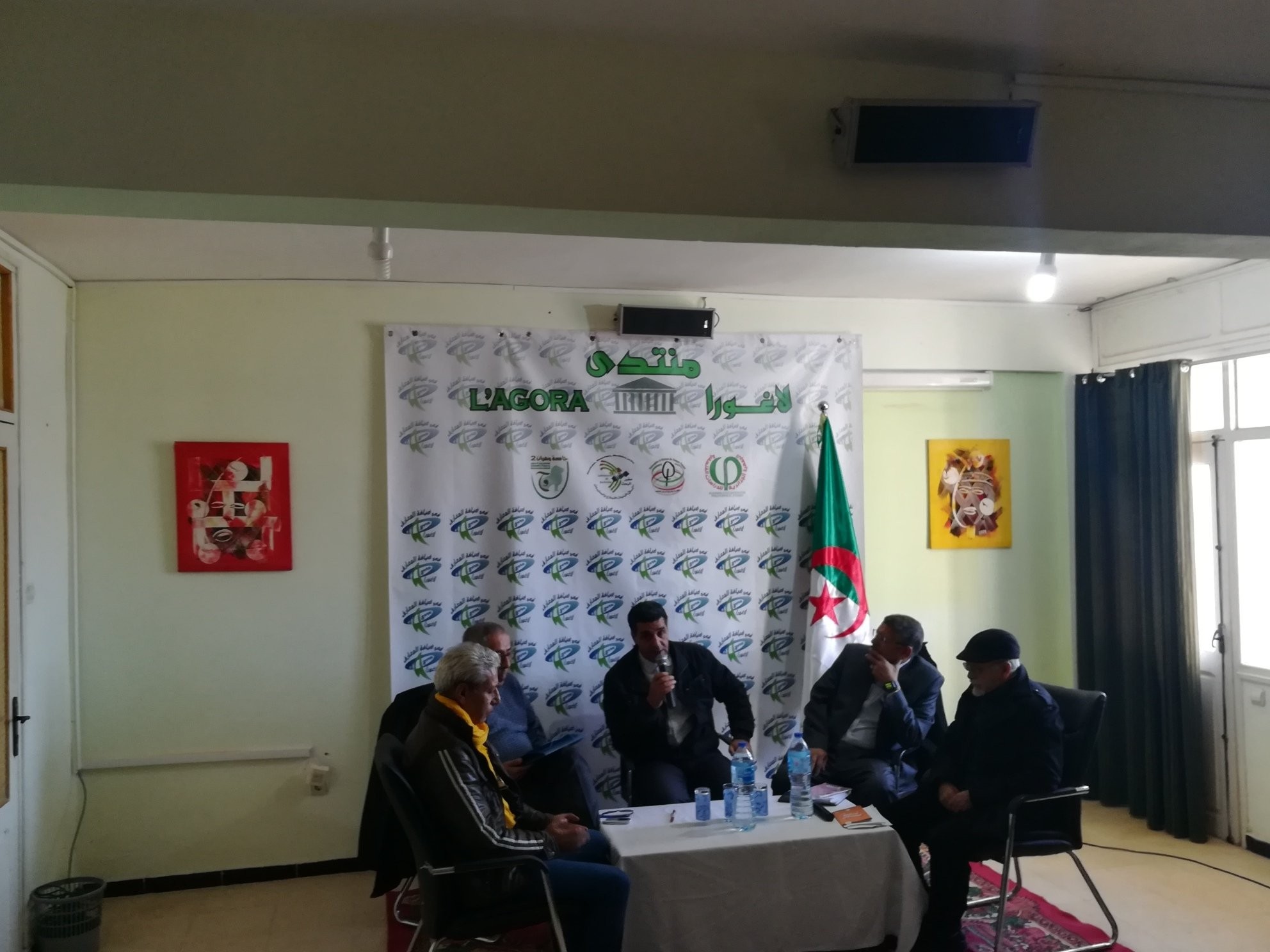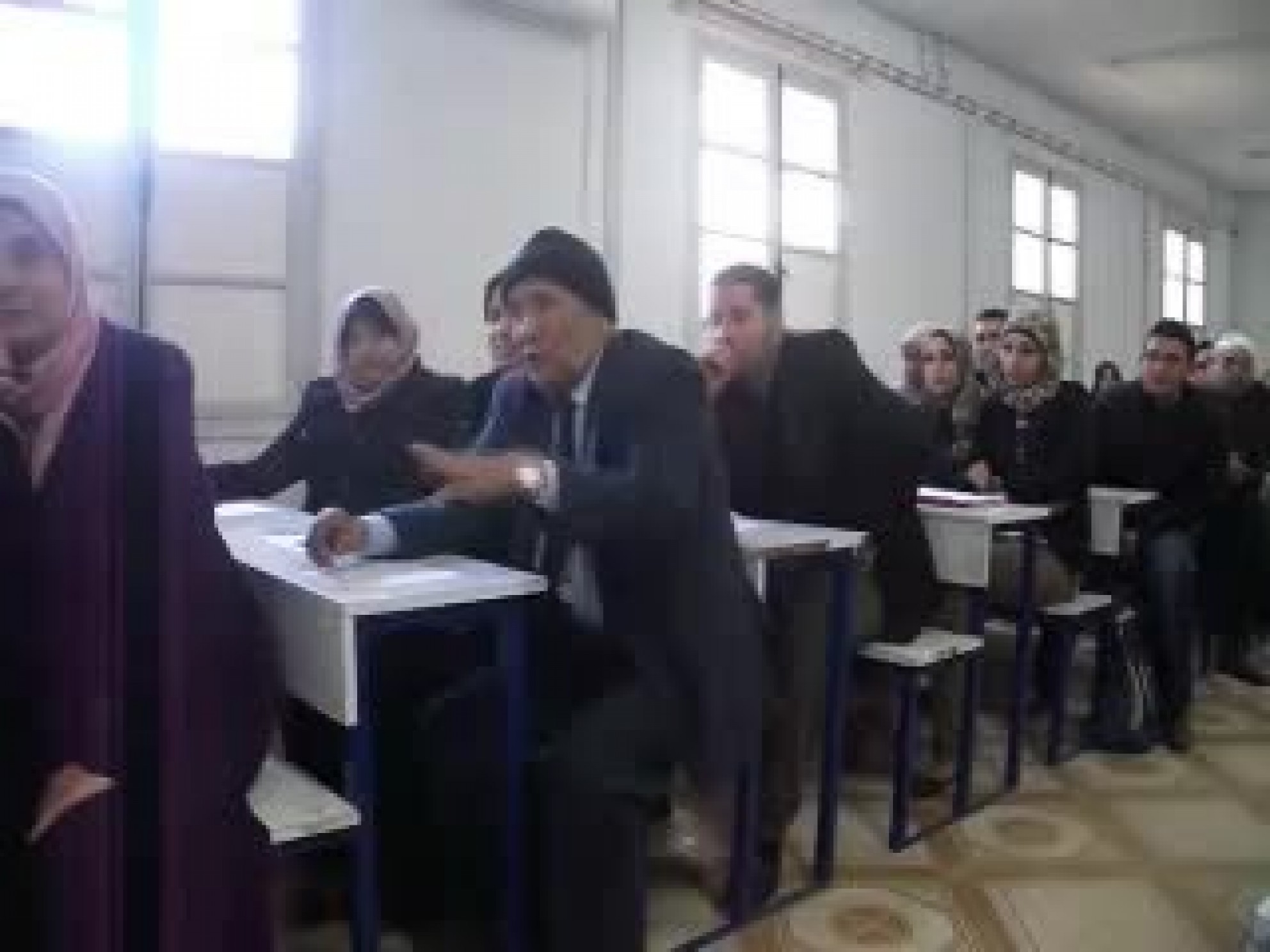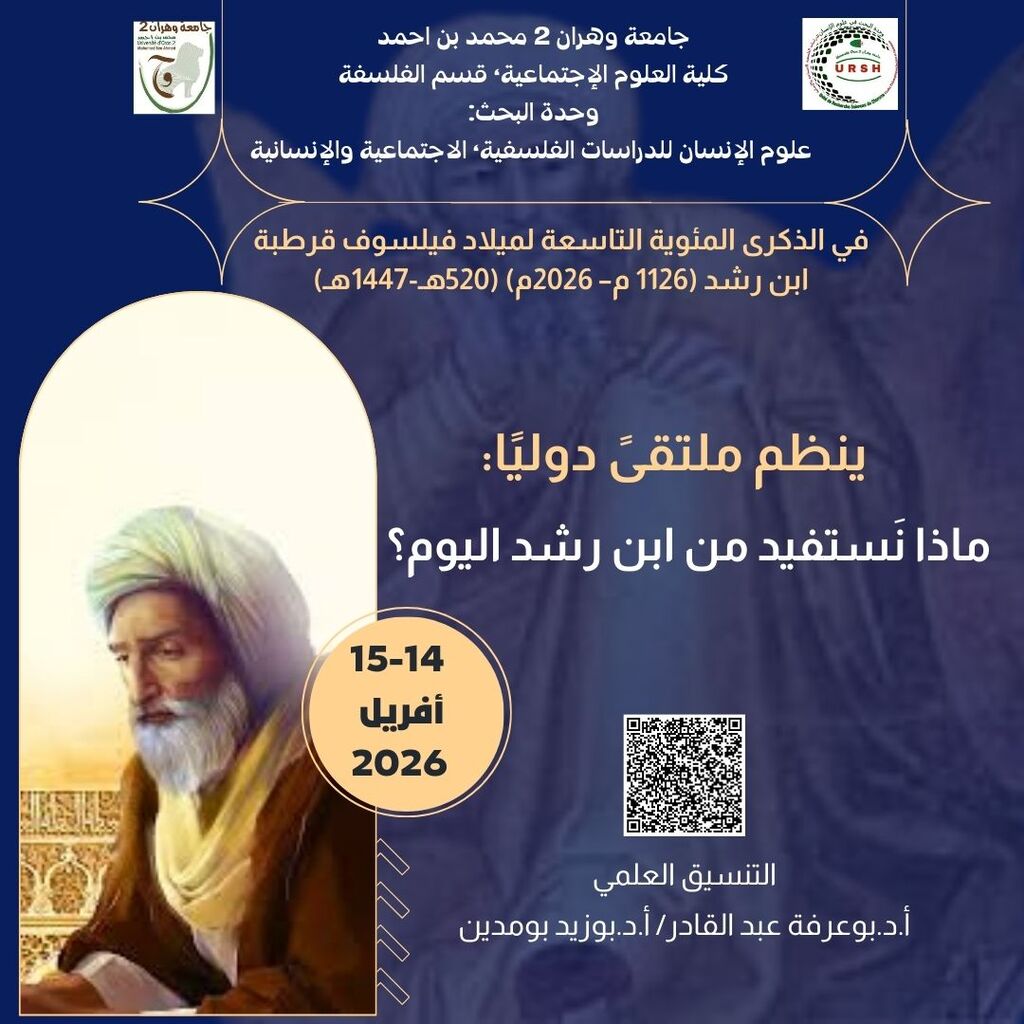
الملتقى الدولي:ماذا نَستفيد من ابن رشد اليوم؟
ملتقى دولي يومي 14، 15 أفريل 2026م
في الذكرى المئوية التاسعة لميلاد فيلسوف قرطبة ابن رشد(1126 م– 2026م) (520هـ-1447هـ)
ماذا نَستفيد من ابن رشد اليوم؟
الديباجة
في عام 2026م تمرّ تسعة قرون على ذكرى ميلاد الفيلسوف والفقيه أبو الوليد ابن رشد (الحفيد)، فيلسوف قرطبة الأندلس، وبلاد الغرب الإسلامي، والعالم أجمع، نصير البرهان العقلي، والإسلام الذي لا يضادّ الحقّ.
كان ابن رشد عالمًا موسوعيًا، حيث يُعد أحد أبرز الشّخصيّات العالميّة في تاريخ الفلسفة والعلوم. إذ أن إسهاماته لم تكن مقتصرة على الفلسفة فحسب، بل امتدّت إلى الطّب، والفقه، والعلوم الطبيعيّة.
شكلت كتاباته جسرًا مهمًا بين العالم الإسلامي والعالم الغربي، حيث عن طريق أعماله استطاع الغرب إعادة اكتشاف التراث اليوناني، وبذلك يكون ساهم في نقل الفلسفة اليونانية إلى أوروبا اللاتينية وذلك أبرز شكل من أشكال الحوار والتواصل مع الآخر، كما لعب دورًا محوريًا في إحياء الفكر الأرسطي وتوظيفه منهجياً في بناء العلوم الدينيّة.
إن استذكار واستحضار أعمال ابن رشد ليس مجرد تكريم لذكراه، بل هو دعوة لقراءة تراثه نقدًا علميًا، ومحاولة تطوير منهجه العقلاني والنّقدي في عصرنا الحاضر. لا نريده أنموذجاً جاهزاً ليفكّر لنا، بل نأمل أن نُفكر عبر كتاباته، ونجدد فيما يُفيدنا، ونُؤرشف ما تجاوزه الزمن. إن أرشفة التراث لا تعني الإهمال والتخلي، بل تعني أن الحفاظ على أي موروث، هو أنه سيظل عند قراءته يُجلب المتعة، ويُعد بوابة لمعرفة كيف كان السلف يُفكر، ويُعالج قضايا عصره.
ماذا نستفيد اليوم من التراث الرشدي؟ لا شك إنه سؤال الراهن والمستقبل، ولكن الأهمّ من ذلك كيف نقرأ ابن رشد اليوم؟، لأن الاستفادة من تراثه مرتبطة بطبيعة القراءة ونوعها، وأهدافها، وغاياتها، ومحاولة هدم تلك الهالة القدسية التي ألصقت بشخصيته، وأيضا تجاوز تلك النزعة الإيديولوجية التوظيفية التي نَمْذجته ضمن قالب فكري ضيق، وحاولت قدر الإمكان توجيه فكره نحو زاوية عِلمَوية لا تتطابق مع فكره، وتكوينه.
إن الاستفادة من التراث الرشدي تكمن في التركيز على جملة من المسائل الهامة، أولها، المصالحة التاريخية بين النظر الديني والنظر العقلي، أو كما سماه الوصل بين الشريعة والفلسفة، وبين النقل والعقل، وبين البرهان والإيمان. وثانيها، أن نقرأ ابن رشد ضمن جدلية: ابن رشد ضد ابن رشد، لفهم السياقات، والمُضمرات، والإشارات، والتنبيهات، والغوص في كوامن الشعور، واستدعاء اللاشعور، والمخيال الاجتماعي، وذلك كله لتحليل شخصية ابن رشد، ومعرفته معرفة تُجلي العتمة والغموض.
وتكمن أيضا في الدعوة إلى قراءة ما يكتبه الآخر (الغير) كما فعل ابن رشد، مع تبسيطه وتهذيبه، وشرحه ونقده، وتلخيصه وتسديه، وتلك الدعوة في غاية الأهمية، لا سيما أن العالم اليوم أكثر حركية في الأفكار، وأكثر سرعة وانتشارا، وما يعرف اليوم ب"التّكامل المعرفي" أو "التّجسير المعرفي".
وبناءً على ما سبق، لنفكر مع ابن رشد بناءً على المحاور الآتية:
- القراءات المعاصرة للتراث الرشدي.
- تطبيقات الفلسفة الرشدية في حل النزاعات الفكرية والدينية.
- دور التفكير العقلاني في تعزيز التعايش والتفاهم بين الثقافات.
- إسهامات ابن رشد السياسية في بناء "دولة الإنسان"
- العدالة وقضايا الحق والواجب.
- التجربة الرشدية و سؤال الغيرية في وقتنا المعاصر.
- المرأة في الخطاب الرشدي.
- إشكالية الحرب والسلام من المنظور الرشدي وعلاقتها بالعصر.
- ابن رشد وقضايا "التكامل المعرفي"
شروط المشاركة:
أن لا يكون البحث قد قدم في ملتقى علمي سابق أو نشر في أية مجلة علمية أو غيرها.
أن يكون البحث متضمنا في أحد محاور الملتقى.
أن يتقيد البحث بالشروط العلمية والمنهجية للبحث العلمي.
أن لا تقل عدد صفحات البحث عن 10 صفحة، ولا تزيد عن 20 صفحة، بالهوامش والمراجع والملاحق.
احترام الآجال المحددة لإرسال الملخصات والبحوث.
أن تراعى في كتابة البحث المعايير التالية:
نوع الخط Arabic Transparent مقاس 14للمتن، وللهامش مقاس 12بالنسبة للغة العربية
وباللغة الأجنبية نوع الخط New RomanTimes مقاس 14 للمتن و10 للهامش.
التهميش طريقة APA
لا تقبل إلا المشاركات الفردية.
مواعيد هامة:
آخر أجل للاستلام إستمارة المشاركة 15 دسمبر 2024
الرد على طلب المشاركة 10 جانفي 2024
آخر أجل لارسال المداخلة 01 مارس 2024
للمشاركة ملآ الاستمارة
https://forms.gle/A4cC2rUWpcMK2H2T6
ترسل الإستمارة إلى البريد الالكتروني التالي:
Cette adresse e-mail est protégée contre les robots spammeurs. Vous devez activer le JavaScript pour la visualiser.
Cette adresse e-mail est protégée contre les robots spammeurs. Vous devez activer le JavaScript pour la visualiser.
هــام : ترفق السيرة الذاتية بالنسبة للسادة الباحثين من داخل و خارج الوطن
ملاحظة:الأعمال تنشر في استكتاب جماعي
International Conference on:
The 900th Anniversary of the Birth of the Philosopher of Cordoba, Ibn Rushd
What insights do we gain from Ibn Rushd (Averroes) today? On April 14, 15, 2026
Conference Theme
In 2026, nine centuries will have passed since the birth of the philosopher and jurist Abu al-Walid Ibn Rushd (the Grandson or al-ḥafīd ), also known by the Latinized version of his name ‘Averroes’ to the West, the philosopher of Cordoba in Andalusia, the Islamic West, and the entire world, and the champion of rational proof and the Islam that does not contradict the truth. Ibn Rushd was an encyclopaedic scholar, considered one of the most prominent global figures in the history of philosophy and science. His contributions were not limited to philosophy alone but extended to medicine, Islamic law (jurisprudence), and the natural sciences.
His writings formed an important bridge between the Islamic world and the Western world, as through his works, the West was able to rediscover the Greek heritage, and thus he contributed to the transfer of Greek philosophy to Latin Europe, which is the most prominent form of dialogue and communication with the other. He also played a pivotal role in reviving Aristotelian thought and employing it methodologically in building religious sciences.
Remembering and recalling the works of Ibn Rushd is not just a tribute to his memory, but an invitation to read his heritage critically and scientifically, and an attempt to develop his rational and critical approach in our present age. We do not want him as a ready-made model to think for us, but we hope to think through his writings, renew what benefits us, and archive what have been rendered irrelevant by the passage of time. Archiving heritage does not mean neglect and abandonment, but rather that preserving any legacy means that it will remain, when read, a source of pleasure and a gateway to knowing how the predecessors thought and dealt with the issues of their time.
What can we gain from Ibn Rushd's heritage today? There is no doubt that this is a question of both the present and the future. More importantly, how do we interpret Ibn Rushd today? The benefit from his heritage depends on the nature of our reading, its approach, goals, and purposes. It also requires an attempt to demolish the sacred halo that has been attached to his personality, to transcend that ideological tendency that modelled him within a narrow intellectual mould, and tried as possible to steer his thought towards a scientism angle that does not align with his ideas and background.
The benefit of the Rushdian heritage lies in focusing on several important issues. The first is the historical reconciliation between religious and rational views, or as he called it, the connection between Sharia and philosophy, revealed knowledge and reason, and proof and faith. Secondly, we should read Ibn Rushd within the dialectic of Ibn Rushd against Ibn Rushd to understand the contexts, implications, allusions, and hints. This involves delving into the depths of feeling, summoning the unconscious, and considering the social imagination. All of this aims to analyze Ibn Rushd's personality and understand him in a way that clarifies any darkness and ambiguity.
It also lies in the call to read and engage with what others write, as Ibn Rushd did, by simplifying, refining, explaining, critiquing, summarizing, and correcting their work. This call is of utmost importance, especially in today's world, where ideas are more dynamic, faster-moving, and more widely disseminated. This approach aligns with what is now known as "knowledge complementarity " or "knowledge bridging."
Based on the aforementioned information, let us think with Ibn Rushd based on the following axes:
- Contemporary readings of Al-Rushdi's heritage.
- Applications of the Rushdian philosophy in resolving intellectual and religious conflicts.
- The role of rational thinking in enhancing coexistence and understanding between cultures.
- Ibn Rushd's political contributions to the construction of the "state of man."
- Justice and issues of right and duty.
- The Rushdian experience and the question of otherness in our contemporary time.
- The woman in the Rushdian discourse.
- The issue of war and peace from the Rushdian perspective and its relevance to the modern era.
- Ibn Rushd and the issues of "knowledge complementarily ".
- Détails
- Écrit par مسير الموقع
- Création : 5 octobre 2024
